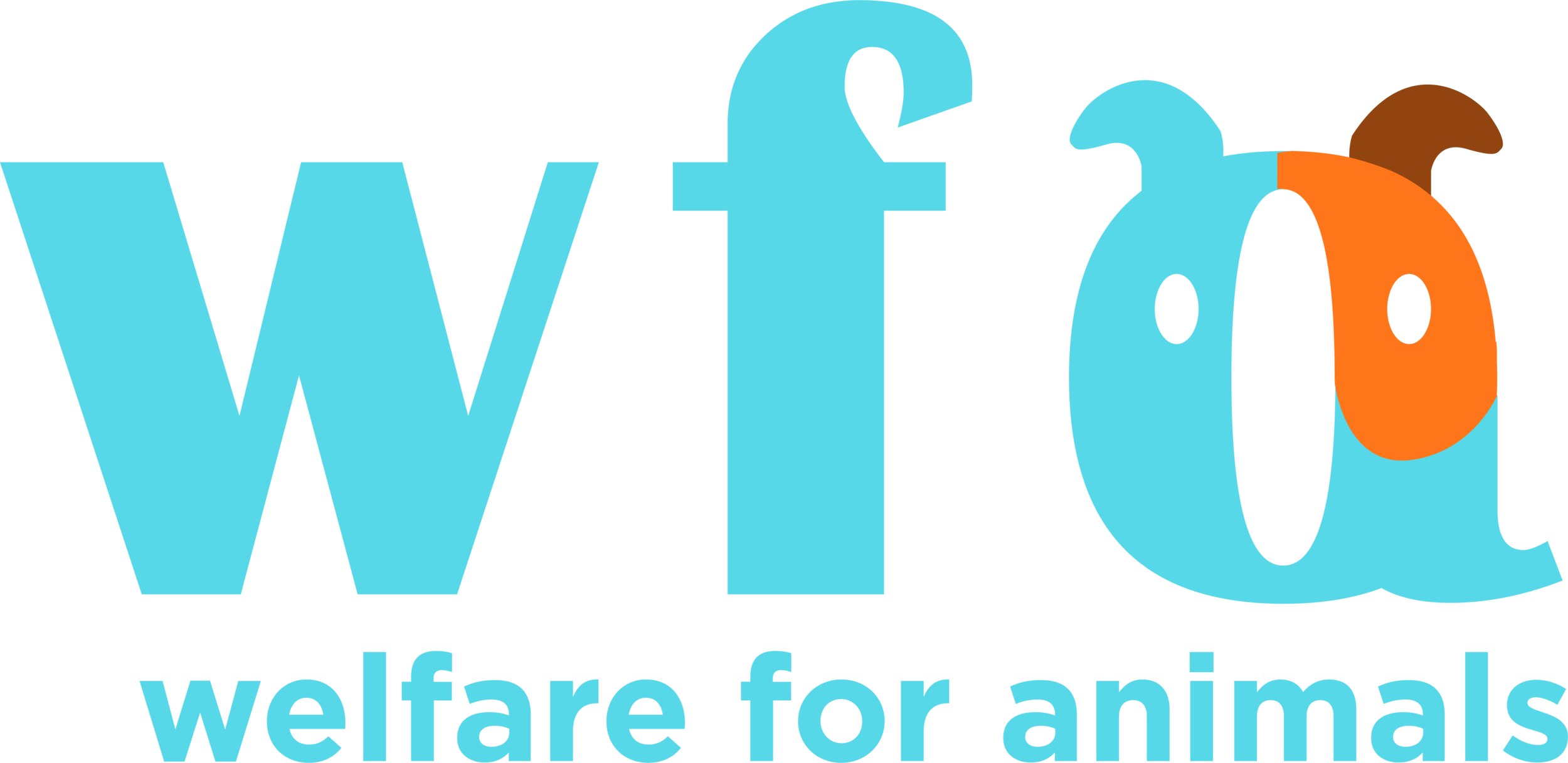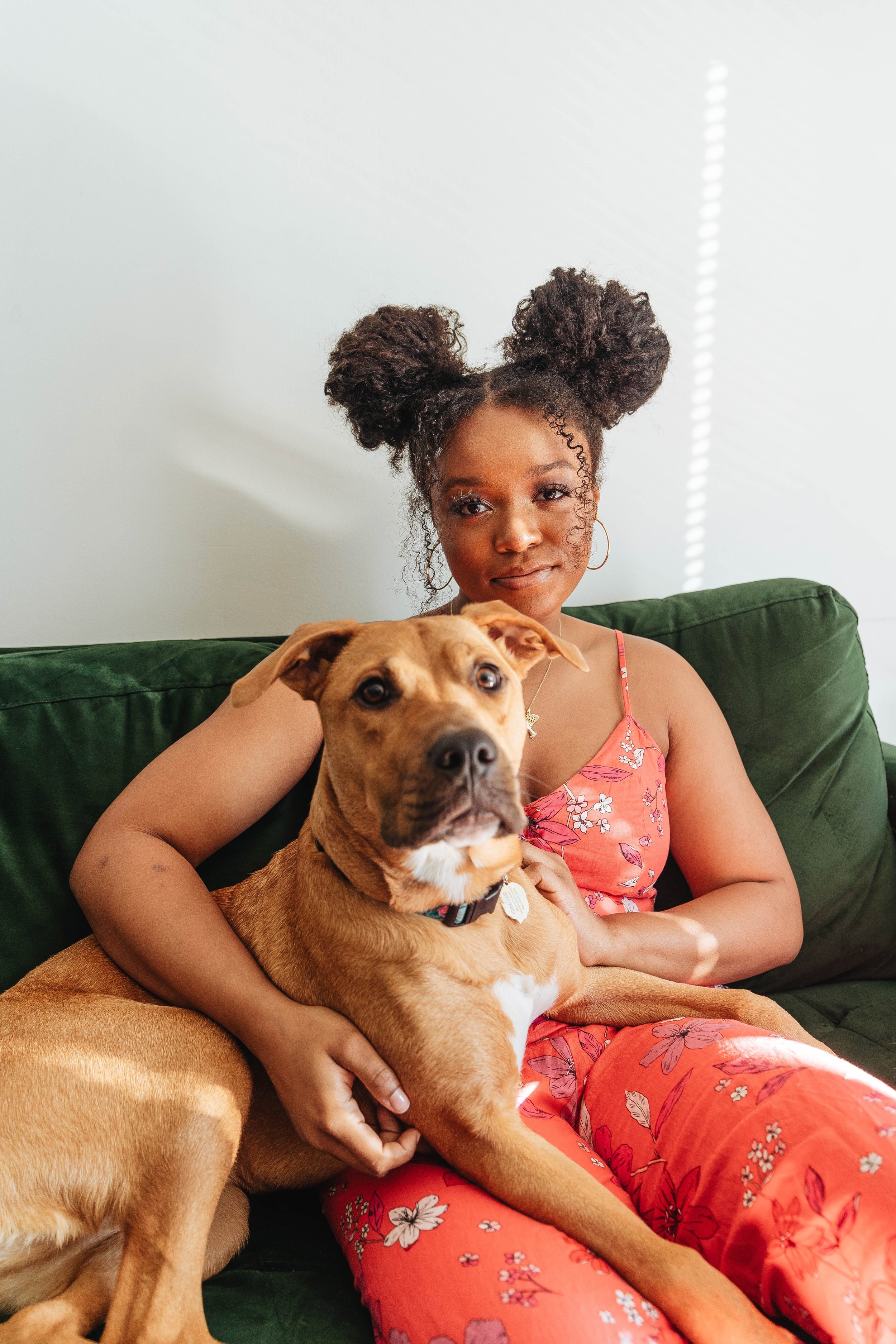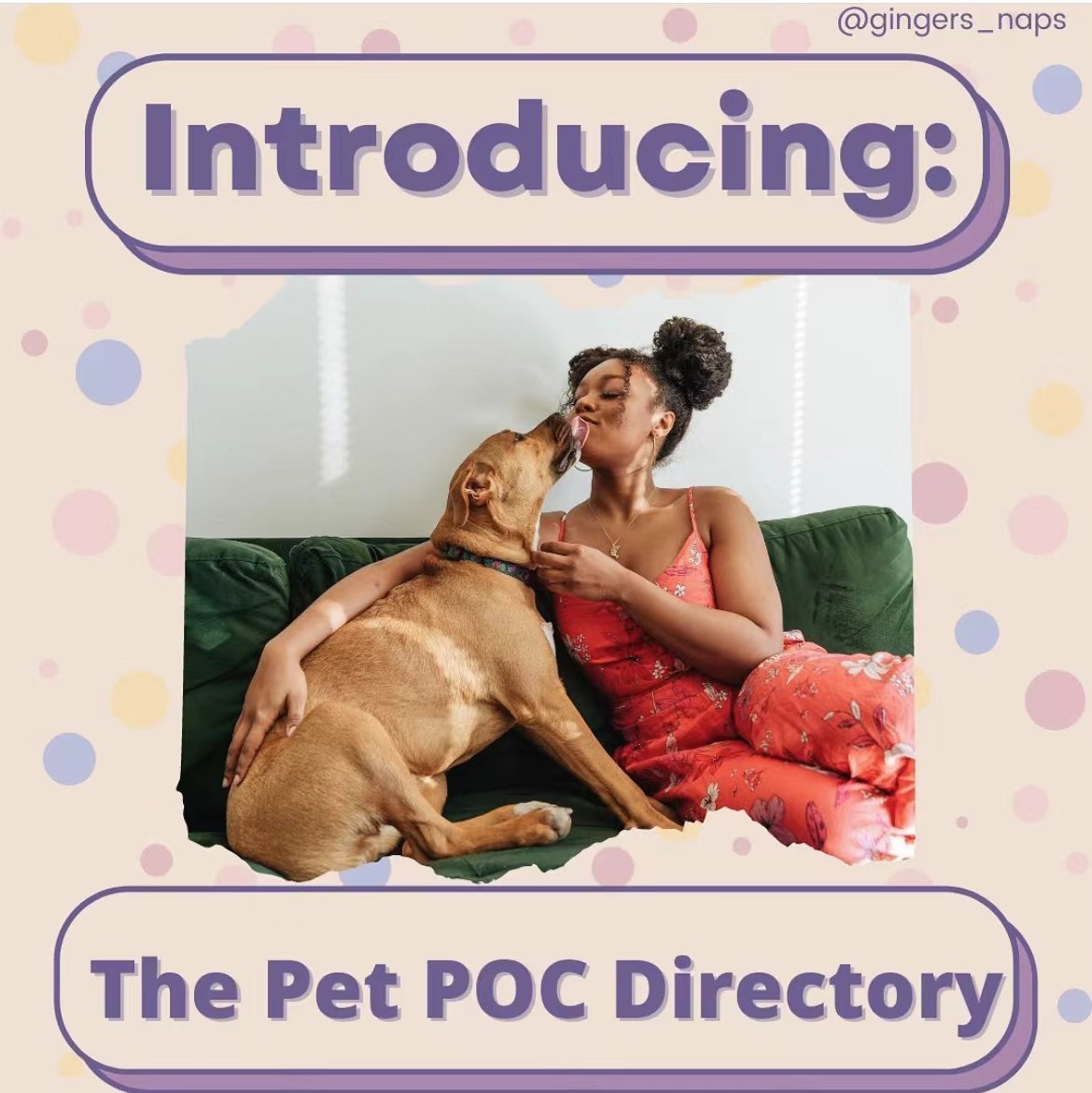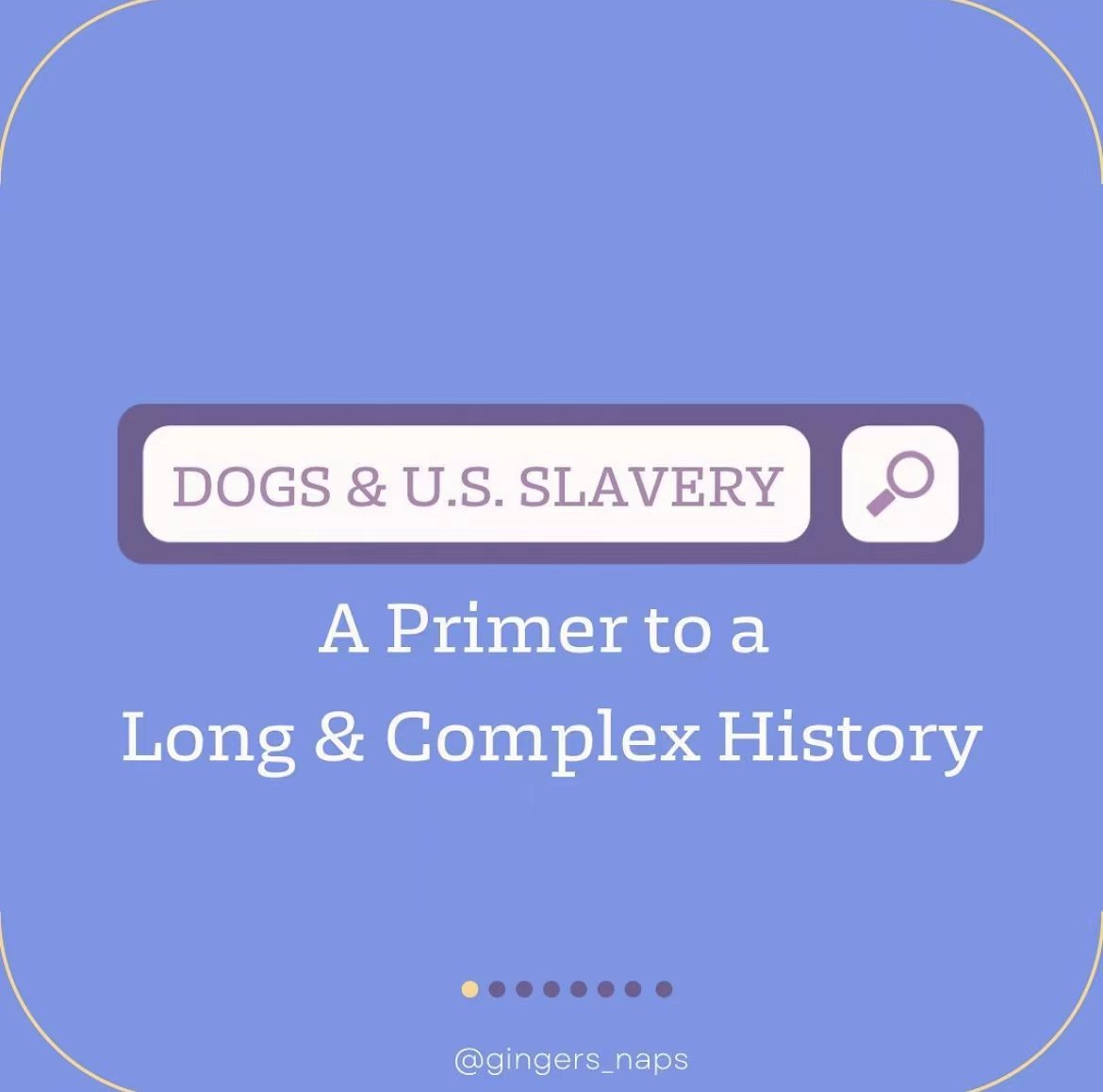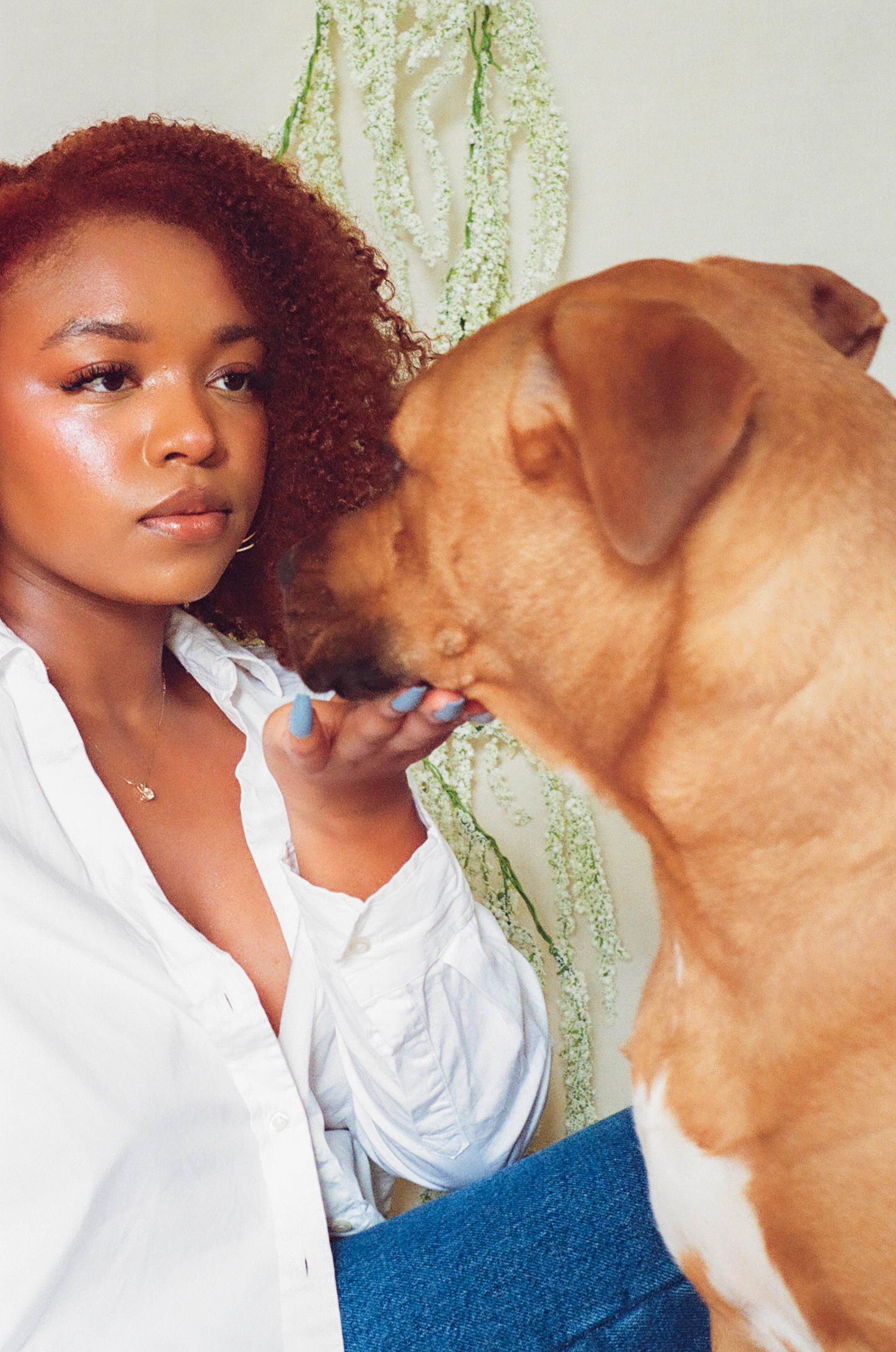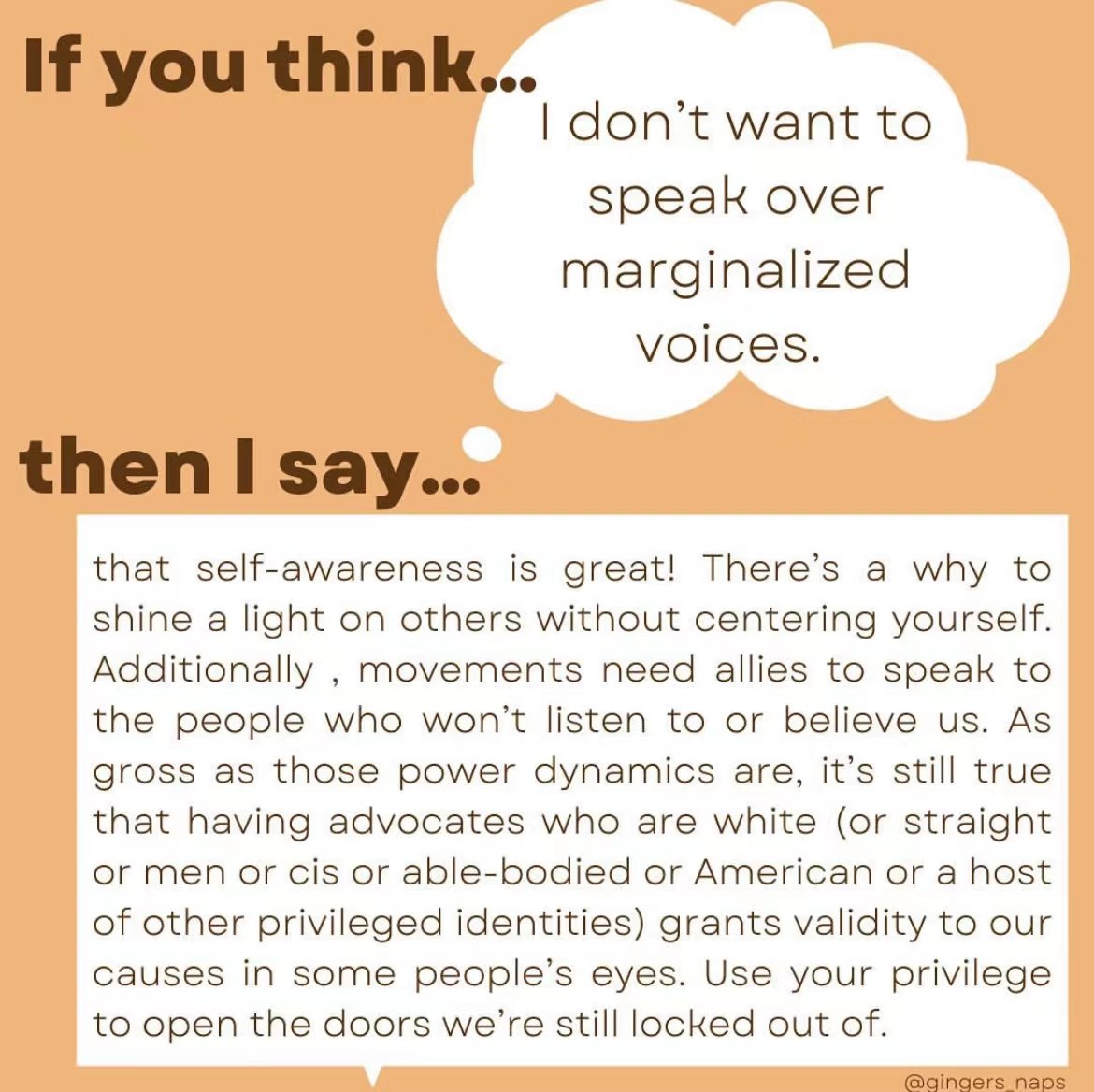Ask an Advocate
BIPOC individuals and voices are a large part of our populations and should be heard and represented. Please give their businesses a follow/like and remember- that BIPOC businesses and content should be supported year-round and not just in one month a year.
For this month, WFA is featuring the animal advocate Kassidi of Ginger Naps. Her Instagram posts often showcase her adorable dog Ginger, but also BIPOC perspectives on pet ownership, animal professionals, history of BIPOC and dogs, as well as the lack of BIPOC representation in the animal industry. In her social animal advoacy work, Kassidi remains factual by referencing multiple of sources and including references for people to learn more on these topics.
You can find her at:
Instagram @gingers_naps
Ginger & Kassidi
What is Ginger’s Naps?
Ginger’s Naps is all about communal learning. It’s a go-to resource for honest posts about the struggles of first-time/ single dog mom life, as well as education posts about diversity, equity, and inclusion in the pet industry. The bio says “come for the learning; stay for the laughs.” I want people to feel like they can expect both from us!
What inspired you to start Ginger’s Naps?
I started the account just as a place to store the thousands of pictures I was taking of my new puppy. I adopted her in September 2020, and I think started the page either at the end of the month or the beginning of October. It didn’t turn into the platform it is today until I started doing the infographics and making connections between pet parenting and anti-racism. I was just sharing all of my experiences as a first time dog parent but people seemed to respond really well when I specifically spoke about race and pets.
Ginger and Kassidi
What do you specialize in?
I suppose I specialize in offering big histories and lessons in small, accessible packages. I try to make really nuanced issues a bit easier to understand.
Tell us about your dog (Ginger)!
Ginger AKA Big Ginge AKA Bubbaz is the light of my life. She’s almost 2 now! I adopted her at 4 months old. Her birthday is somewhere around Cinco de Mayo. Her papers say that she’s a Black Mouth Cur but pretty much everyone (including me) believes she has some pitbull in her. I always tell people that I got really lucky with her. I can count the number of times she has had an accident indoors on my fingers. She’s super smart and a quick learner. She’s really easygoing and doesn’t put up a fight at the vet or the groomers. And when she feels like listening, she’s just about perfect. The best first dog I could’ve asked for.
What is the Pet POC Directory? And why is it important?
The Pet POC Directory
The Pet POC Directory is the extension of a list of Black pet parents and business-owners I was keeping. I so rarely got the chance to connect with other Black people in the pet Instagram world, so every time I came across someone else, I saved their posts, and then I started collecting folks in a spreadsheet, and then I made that spreadsheet public so other people could find and support Black folks in this space. The Directory came about because I was having trouble updating and filling out the spreadsheet all by myself, and because I wanted to support Asian-owned businesses and Latinx-owned businesses and there were a multitude of other identities that I wanted to be able to support when I could. So the Pet POC Directory is a growing list of POC-owned pet businesses and social media pages. It’s important because the pet world can be such a white space. If you google “pet influencers” or “best groomer/ trainer near me,” there’s a good chance you’ll be directed to lists of white people almost exclusively. But we’re out here! People of color are out in the pet world too!
How can people use it?
To join (if you’re a POC), there’s a link to a Google Form in my bio (check out her Instagram @gingers_naps). You can fill out as much or as little information about your identity as you’d like. To use it, the link to the directory spreadsheet is also in my bio. It’s a Google Sheet so you can just use your search function to find whoever you’re looking to connect with or support. You can search for businesses owned by Indigenous folks or nonbinary folks or non-white doodle parents to follow or anything!
Why does DEI (diversity equity and inclusion) matter in the pet industry?
Firstly, DEI efforts are important to every industry in the world because white supremacy affects every industry in the world. So those systems need to be dismantled everywhere. People of color deserve to feel as safe and accepted as others do. Secondly, excluding anyone in the pet industry only does a disservice to the animals. We need all hands on deck when it comes to saving animals, so to reject or harass people of color who want to get involved is counterproductive. We’re just as capable, just as animal-loving, and just as deserving of pet companionship as everyone else is.
Are Black Americans represented in the pet industry?
We’re not represented enough! At least not in a positive light. The numbers of Black vets and other pet businesses aren’t commensurate with the number of Black people in the country. However, we’re over-represented when people think of animal abuse and neglect. There’s a narrative floating around that Black people simply don’t love their pets as much, but that’s a myth! One that I’m committed to overwriting.
What is the relationship between dogs and the enslavement of Black people in the USA?
One of Kassidi’s educational posts about the complex history of Black Americans, slavery and dogs
As we know, modern use of K-9 units to terrorize Black folks descends directly from the use of "Negro Dogs." which used by enslavers to track down, recapture, and punish enslaved people. Many dogs were specifically bred and trained to target, track, and attack Black flesh. Frederick Douglass describes how enslaved people were forced to brutally beat dogs and then run, to teach dogs to hate and chase Black people. These practices originated in the West Indies and made their way to the U.S. South by the early 18th century. In order to emphasize the dehumanization of enslaved people, some states legally barred enslaved folks from having dogs, citing that property could not own property. These laws were also established out of fear of retaliation using dogs as weapons against white people. In places where enslaved people could keep dogs, those relationships dramatically improved Black folks' quality of life. Having something to care for reaffirmed enslaved folks' humanity in a society that constantly denied it. Dogs offered security, sustenance, and at times, profits to enslaved people. Dogs helped folks feed their families by catching prey to eat and to sell. Some folks kept their dogs in secret, or used them to hunt without permission from their enslavers. As such, dogs were small rebellions. There are recorded cases of folks who fled the plantation and relied on their dogs to navigate new rough terrains and secure food along the way. It's important to remember that the relationship between Black folks and dogs is not entirely rooted in trauma and tragedy. "J. Vance Lewis, born a slave in Louisiana, noted this dual importance. 'The slave loves his dog,' he wrote. 'They are constant companions. He talks with him by day and hunts with him by night. . . . His dog is the only thing under the sun that he can call his own; for the master claims the woman that is called his wife, his offspring, his hut, his pig, his own body—his very soul'" (Giltner, 27). There are lots of highs and lows in the history of enslaved Black folks and dogs. In some instances, dogs were tools for the torture of Black bodies. In other instances, dogs were tools for self-determination, safety, and sustenance-- not to mention being companions, partners, and friends. In other words, the Black dog lovers & social justice advocates didn't introduce race into the dog world; it has been there from the beginning. Addressing this history is part of how we make a better, safer, more habitable and diverse future.
Tell us more about the complicated story between pit bulls and Black people.
Kassidi & Ginger
The umbrella term "pit bull" refers to more than one breed, including the American Pit Bull Terrier, American Staffordshire Terrier, Staffordshire Bull Terrier, and the American Bully. Studies show that humans aren't particularly great at identifying these breeds by eye. Today pit bulls are considered especially aggressive on their own, but they're considered even more aggressive in the care of Black people, especially Black men. It wasn't until the Civil Rights Movement in the 1960s, when more Black families sought pit bulls to protect themselves and their homes, that the breeds became more associated with us. Soon, pit bull breeding and fighting, which largely rose up due to their economic advantages, became seen as "Black" activities. Pit bulls became ingrained into hip hop culture and other performances of Black masculinity. Soon, both groups were deemed inherently "dangerous" by American society, and as controlling Black folks became more and more of a political imperative, "being tough on pit bulls... was an essential part of being tough on crime" (Dickey). High-profile cases like Michael Vick's and DMX's reaffirmed the already-established stereotype of Black people as animal abusers. And of course both deserved to face consequences for their participation in cruelty. However, the public's response was also extremely raced, with some protestors literally lynching Vick effigies and drawing comparisons between his Black features and those of a dog. Myths about pit bulls' "locking jaws" and supernatural bite force mimic (incorrect) race science used to justify enslaving Black people or withholding pain meds from us today. But that's all they are: myths. Bad science may also contribute to the over-representation of pit-bull-type dogs in reported bite cases. Studies have found that not only are people unreliable identifiers of pit bulls, but also, "non-legislated breeds" are less likely to have their bites reported to police (like how Black folks are over-represented in drug possession arrests despite making up so little of the population and not being any more likely to do drugs than white people). Breed-specific Legislation (BSL) refers to laws put in place to increase public safety by banning certain breeds from public or private spaces. These are usually breeds considered "aggressive," including pit bull types. One problem with them is that BSLs don't necessarily reduce the number of reported bites. Another problem is that if we associate pit bulls with Black and Brown folks, then BSLs essentially function to ban them from housing and public spaces too. If you can't rent an apartment in your area with a pit bull, and you can't afford to buy a house, what are your options? Moving somewhere else? Surrendering your dog? And if you do surrender your dog, imagine how you'd feel if you saw a rescue post a picture of her with a caption about how she was abandoned at the shelter just to pull at the heartstrings of potential adopters? Some rescues play up or completely invent a tragic backstory without considering that someone may have just made the hardest decision of their life. The pit bull undergoes a transformation. Next to a Black man, the dog is a threat. When the same dog is photographed next to a white woman, the dog is assumed to be kinder, gentler, safer. Add in a feather boa and a silly hat and you've got yourself an adoptable dog, stripped of any raced and classed negative associations. Advocating for the breed is necessary and noble work. We still need to be honest about the roots of that work.
The "nanny dog" myth and fairy wing photoshoots are attempts at severing the image of the pit bull from the image of the Black community. And I've learned those methods don't necessarily serve the dogs, as they can convince someone to adopt a dog they're not prepared for. We can't fight myth with myth. We can't fight myth with anti-black narratives and laws (which don't even reliably increase public safety. We have to fight myth with fact. And the facts are that pit bull type dogs need to be considered on an individual case-by-case basis, like every other dog, or we risk letting classism and racism wipe out entire breeds.
How challenging is it to be a BIPOC animal advocate on social media?
I think in general, BIPOC have to fight to be seen more than others on and off of social media. But I can’t speak to that particular challenge because I built my platform speaking about these issues so I never felt like I had to hide who I am to succeed on IG. Showing myself and my perspectives actually earned me the community that I have now.
One of the amazing posts by Kassidi about reasons why people might not post about social justice on Instagram
